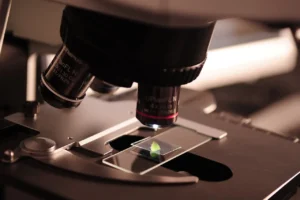
ICON plc, (NASDAQ: ICLR) a world-leading healthcare intelligence and clinical research organisation, today launched its “Optimising biotech funding” whitepaper. This provides an overview of the current state of play for biotech companies and the research and development (R&D) strategies they can adopt to attract and best utilise investment funding.
A recent survey of over 130 biotech executives, published by ICON, shows that 60% of respondents expected to increase R&D spending, whilst only 2% planned to reduce funding. While respondents were confident in their outlook with regards to investment milestones and product success, significantly, 32% of respondents cited clinical trials as one of the biggest challenges in bringing novel therapies to market. This finding suggests an opportunity for biotechs to consider how they can work more comprehensively with their clinical development partners.
Chris Smyth, President of ICON Biotech, commented: “Biotech companies’ lean structural models mean they outsource a large proportion of their clinical development and R&D activity. Under financial constraints they often use ad-hoc outsourcing contracts that can be costly and may not offer the continuity needed. Building cohesive and strategic partnerships with large pharma, CROs and investors can help in developing a more robust strategy that better supports the potential success of products.”
Securing funding is a perpetual priority for the biotech industry. Half of respondents (48%) are using partnerships with large pharmaceuticals as their current funding method, while a third (32%) have gained investment from venture capital firms. With 15% of respondents noting the need for additional funds before they can progress R&D plans, biotechs need to take a holistic approach to attract investment. Understanding the various sources of funding and their distinct areas of focus is important – from venture capital and partnerships with large pharma, to other sources such as government initiatives, accelerators and incubators.
Survey responses also signalled the impact the funding environment will likely have on operations. Almost half (47%) of respondents said the rising cost of capital will have the greatest influence on future operations, and 35% named cost management as the most significant barrier to innovation. These findings emphasise the importance of implementing strategies to best utilise the funding biotechs have secured. These include best practices to optimise trial designs and proactive and timely communication with regulators to help plan development programs and improve endpoint selection.
“Biotechs must walk a line between de-risking and validating their assets to instil confidence in potential investors while pursuing novel innovation to catch their interest. Ensuring there are robust clinical development strategies in place underpins both these goals. Support within the wider industry is available – partnering with large pharma and CROs will help biotechs continue to contribute to the innovative and scientific advancements of much needed medicines,” commented Chris Smyth.
There is still significant capital available for biotechs. In the whitepaper, “Optimising biotech funding”, ICON shares how companies can best position themselves to secure funding, as well as R&D strategies to maximise funding once it has been secured. Areas covered include:
- Considerations for biotechnology companies as they pursue funding from sources including venture capital firms and partnerships with large pharmaceutical companies
- How companies can make more strategic outsourcing decisions, participating in thoughtful collaborations to optimise their programs
- Best practices to optimise trial designs, maintain development timelines and build value into the program to maximise the impact of funding




